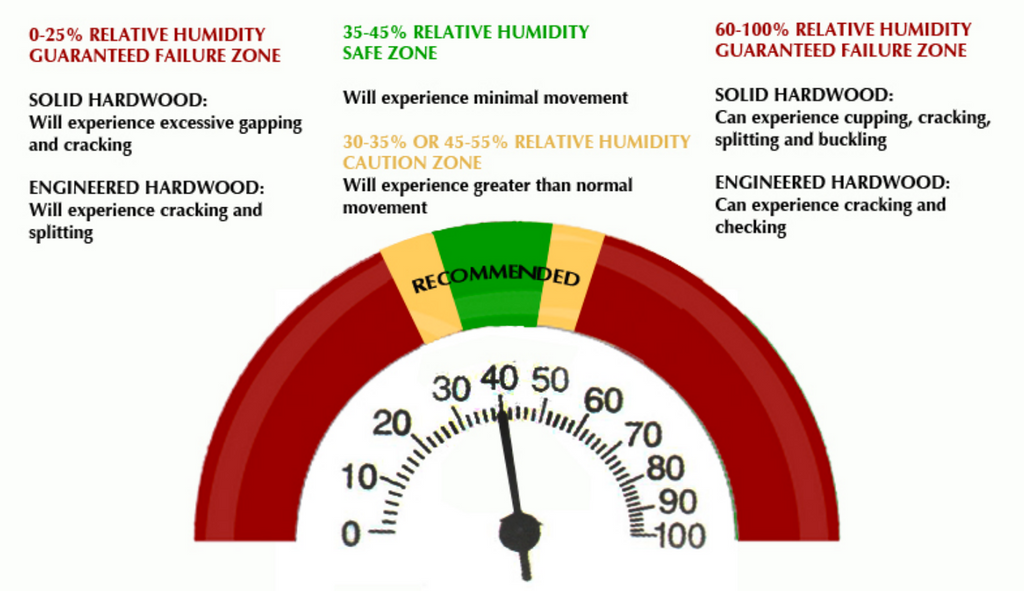There are 4 types of radiant heating systems (steam radiators, hydronic (water), hot water baseboards and low voltage electric). If you are choosing our engineered hardwood floor it is very important that your heating contractor understand the maximum surface temperature of the flooring cannot exceed 25 degrees Celsius. Most species are not recommended over radiant heat. Our engineered hardwood is designed not to dry cup or delaminate. Dry cupping is when the solid wood layer shrinks when over-dried, forcing the substrate to follow. Ours will remain generally flat when dried but surface cracks in the wood layer appear as the top layer shrinks. Over-drying can be avoided by operating a humidifier that can keep your humidity between 35-55%. The assumption that engineered hardwood flooring is bullet proof is not accurate. We suggest choosing a rustic look with a matte finish. If a crack appears it becomes part of the rustic look. Choosing a dark colour with a shiny smooth finish is not recommended...
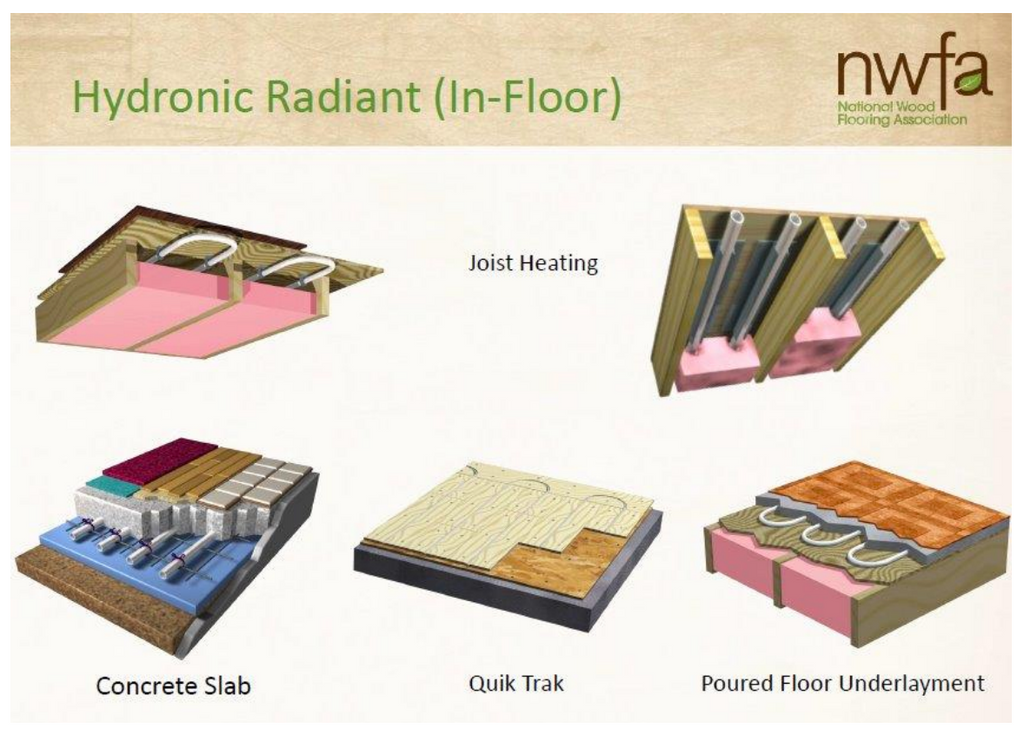
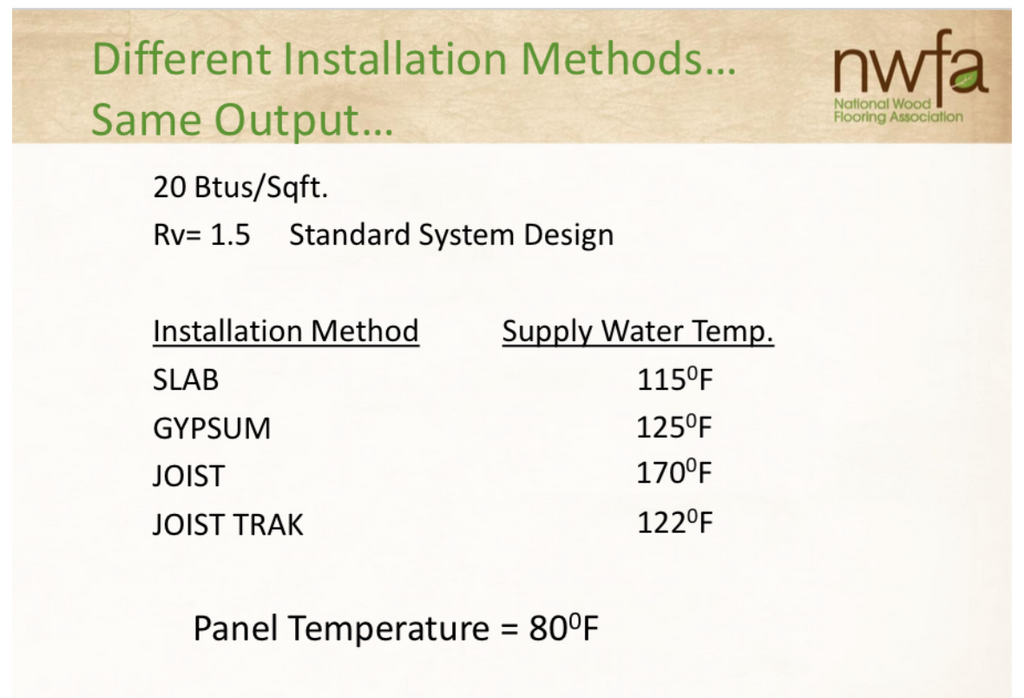
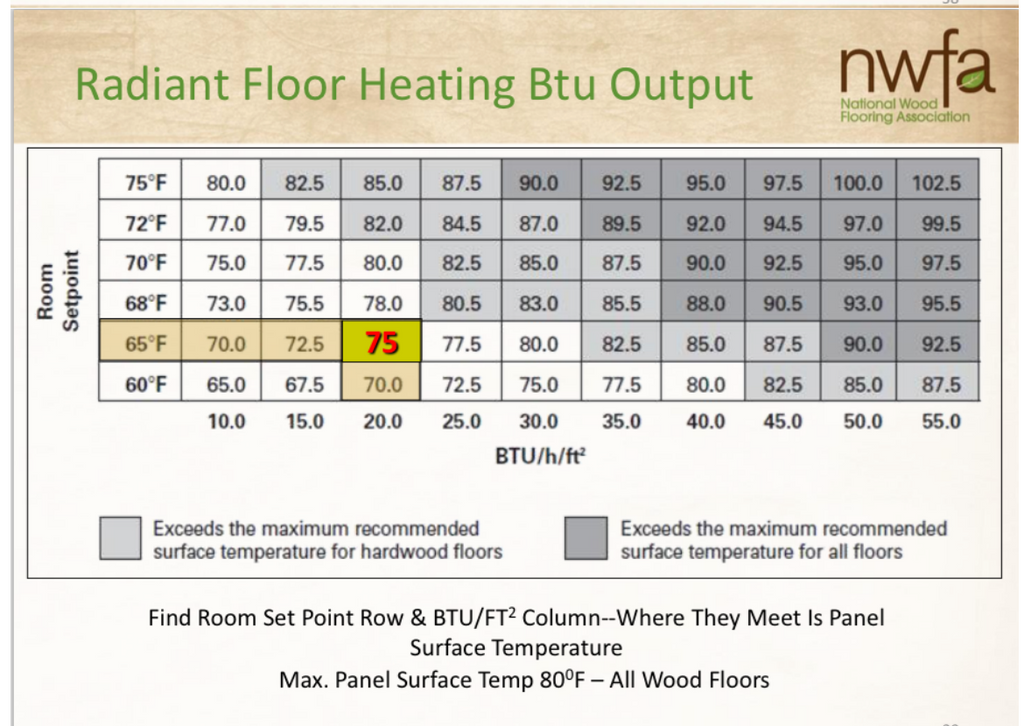
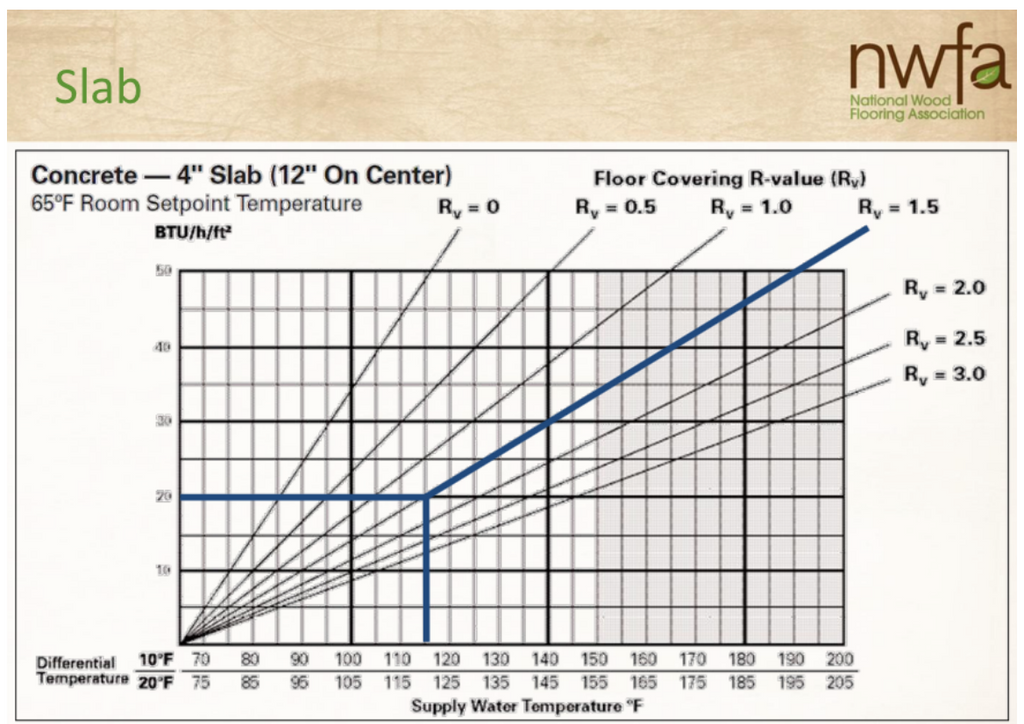
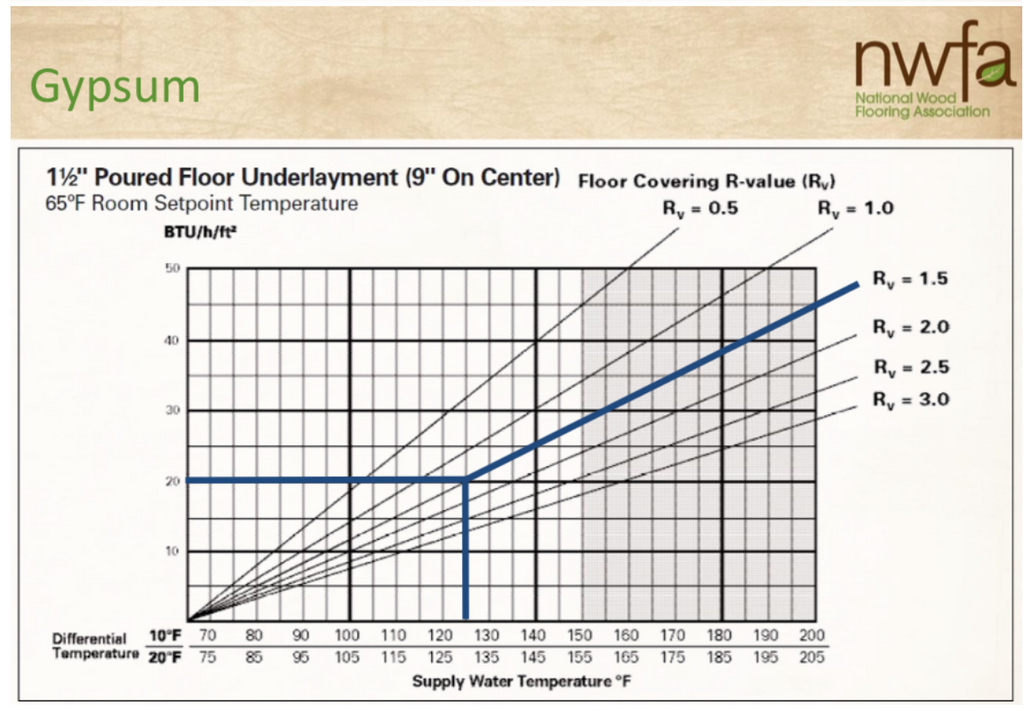
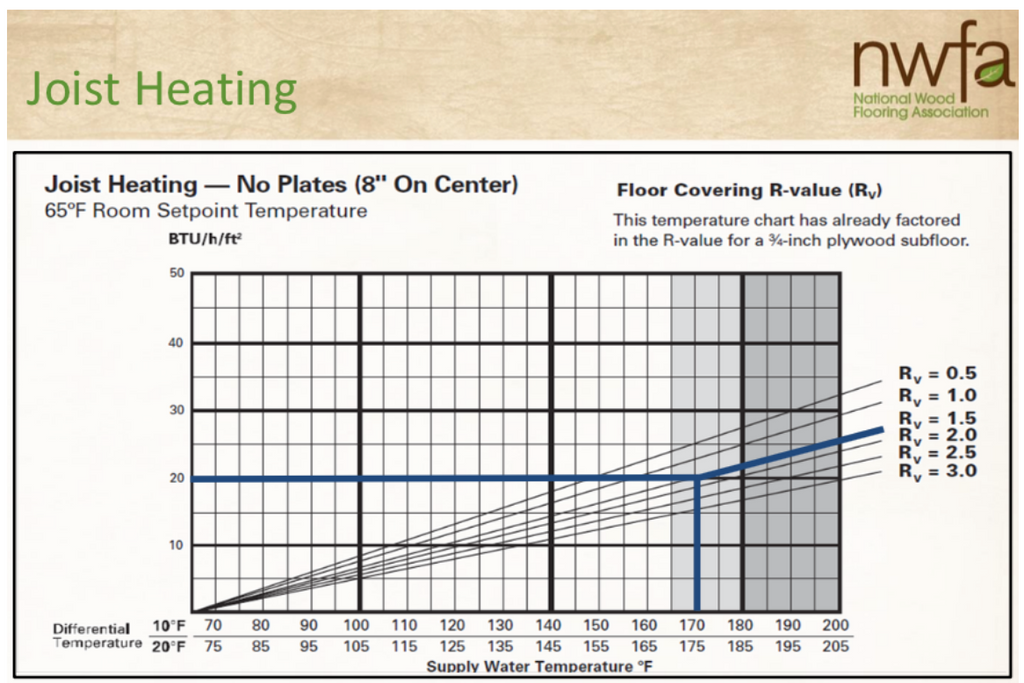
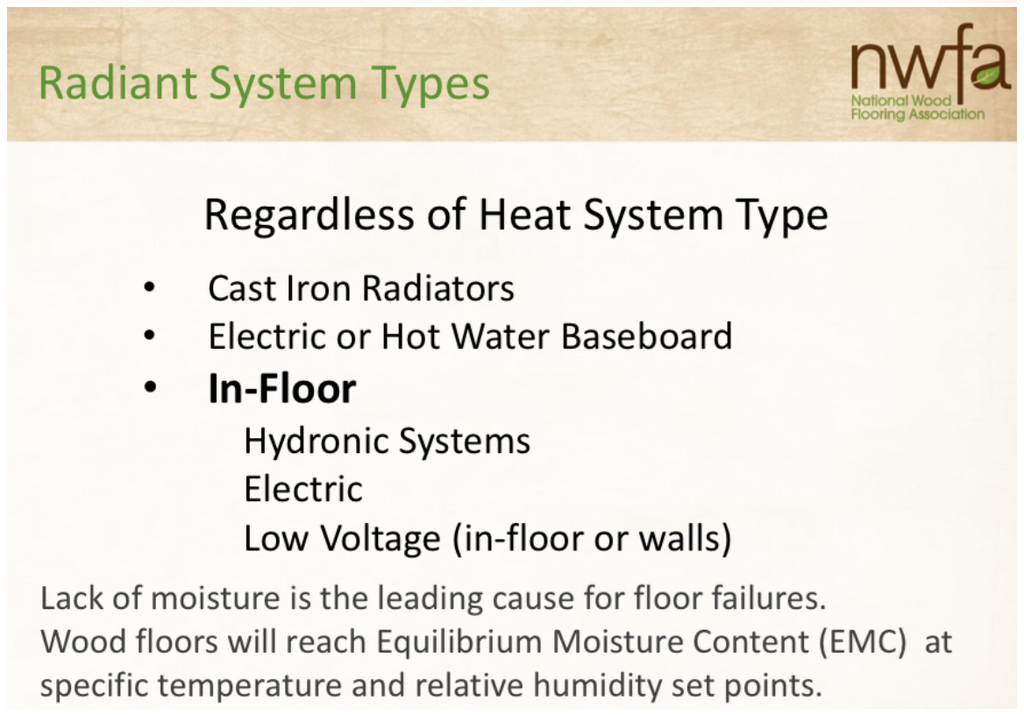
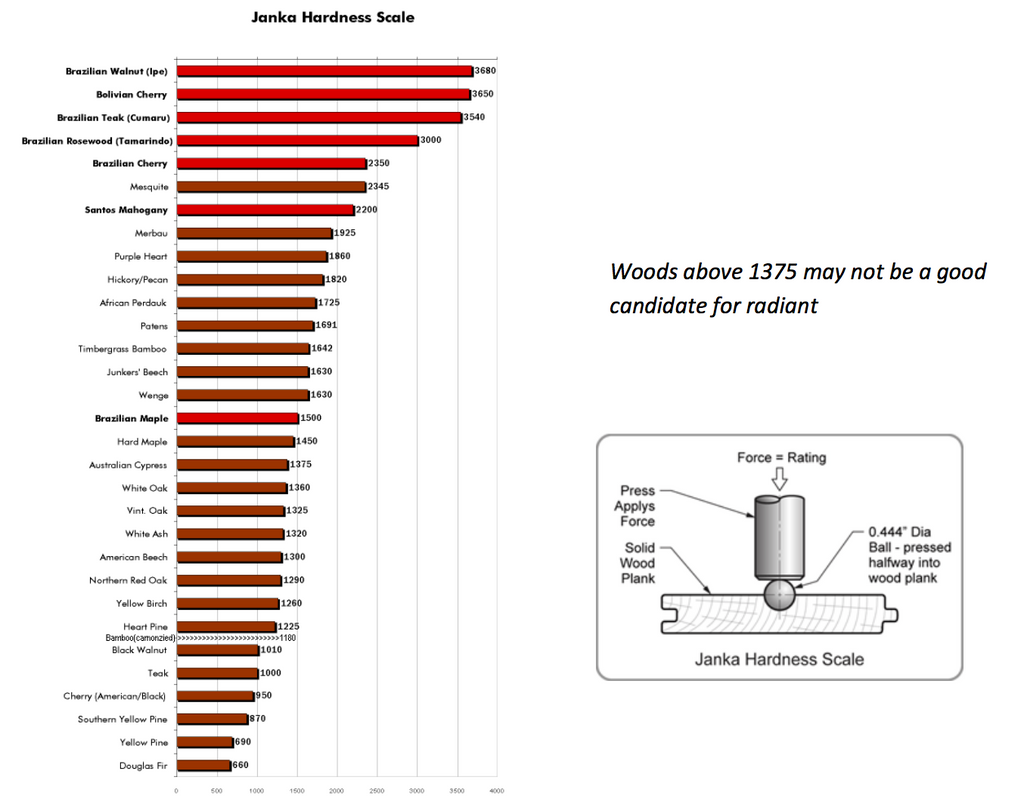
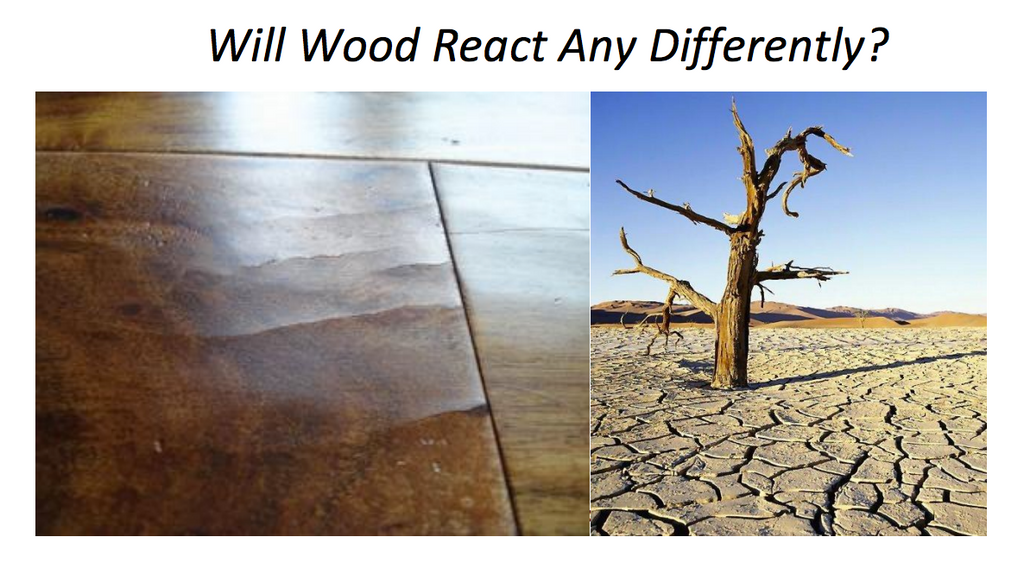
The system must be designed by a professional who can calculate how big the system should be as well as the best location for the manifold, so the hottest water leaving the system with a heavy concentration of piping is not under the hardwood flooring. In the planning stages, the manifold with the exiting hot water, with heavy concentration of piping, should be located where tile or some other floor covering is used. A professional can figure out the size of pex piping and the R value of what products are going over the radiant heat to create the most efficient system. It is recommended not to exceed the figure of 1.5 the accumulated total of flooring and subflooring to remain efficient.
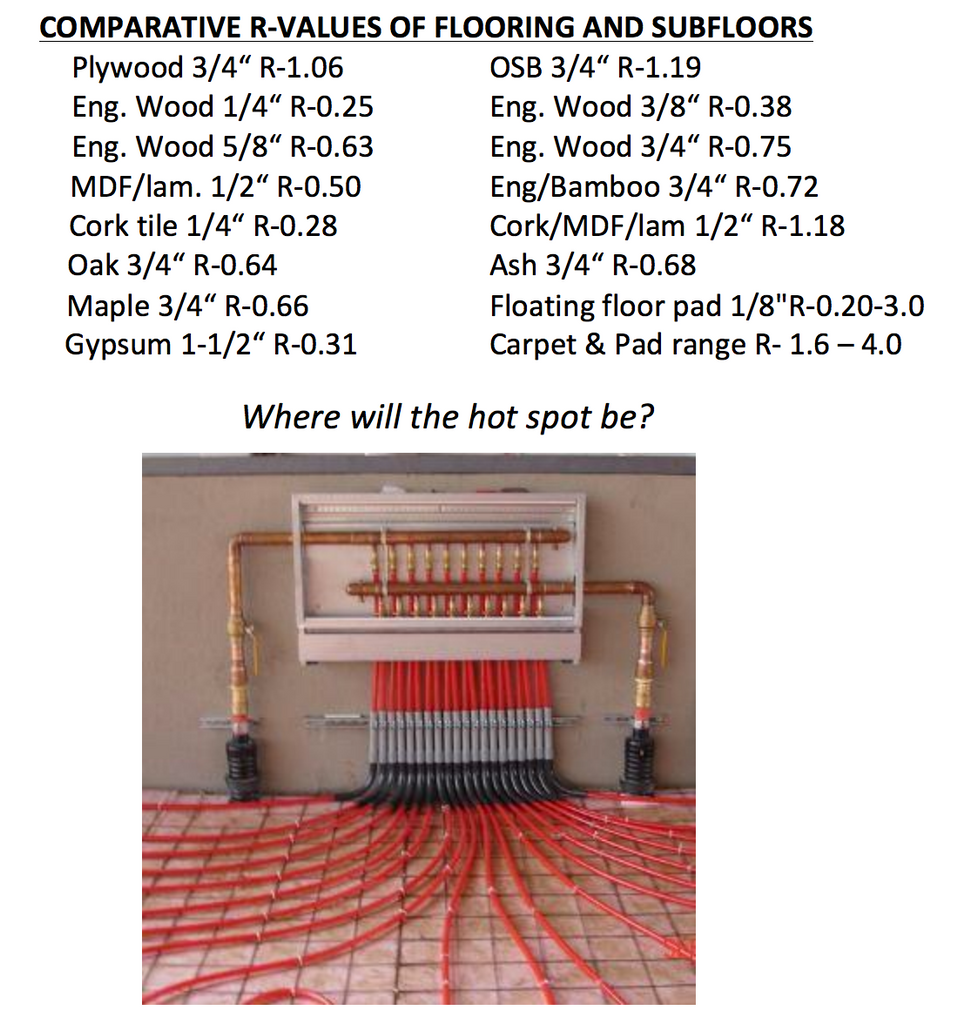
Whether it is concrete or joist heating, the system should be on and running for 7 days before installation can be considered; then moisture tests taken. Check for hot spots before installation commences. Covering floors with area rugs will create hot spots, which will raise temperature above maximum 25 degrees C causing over-drying of the engineered flooring.
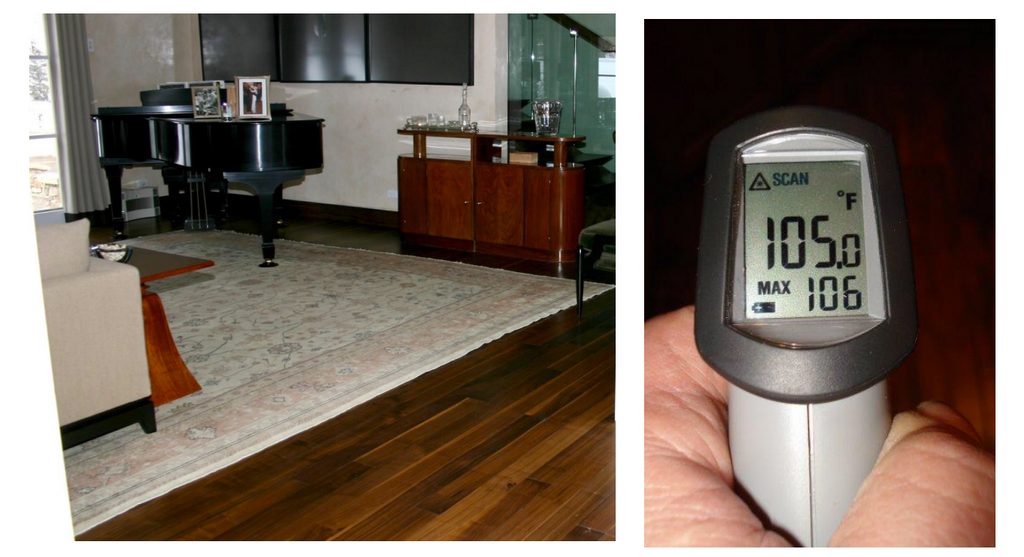
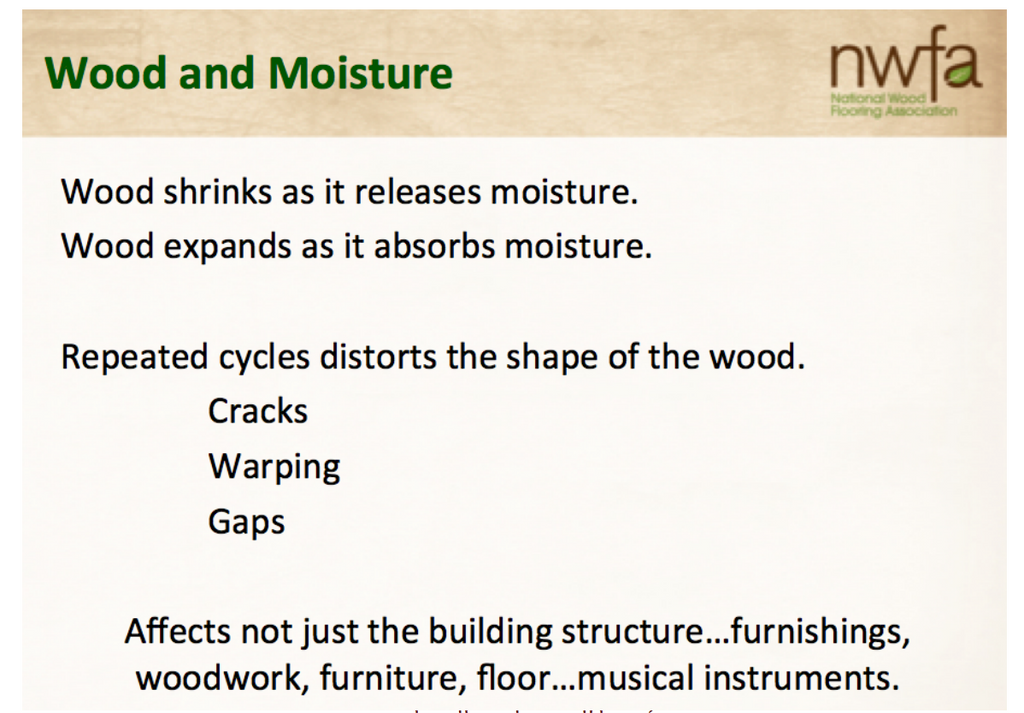
These are pictures of poor quality engineered floors over radiant heat that have been exposed to either, overheated systems or large temperature swings. Unlike normal heating systems, radiant heat is steady; adjusting the temperature frequently is very hard on the wood and should be avoided. You should set your temperature and leave it.
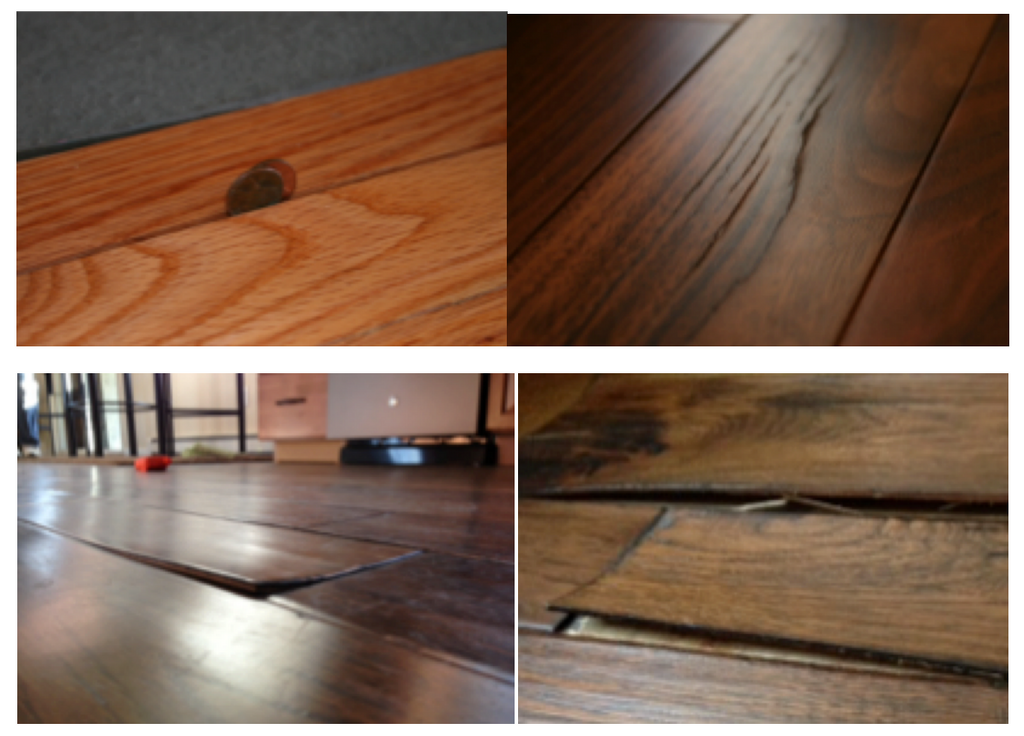
As shown above, wood is sensitive to temperature and moisture; poor quality products are more apt to experience severe failures. As mentioned earlier our product is not bullet proof, but it will fail much less than poorly manufactured products. It must be realized we are still dealing with a natural product and it is essential to follow our temperature and humidity guidelines. Additionally, the conditions the hardwood flooring enjoy are the same conditions for you to have a healthy body. As the chart on the following page demonstrates; what’s good for your floor is good for you.
